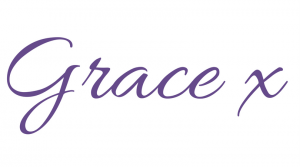
Paying more tax than you are obligated to is no fun so it’s also important to be aware of the rules and requirements for claiming a tax deduction. Ending up in hot water with the ATO can be avoided easily by following the rules surrounding tax deductions. When you take in account the ATO’s rules and your obligations DGRC deductions can provide a great way for businesses and individuals to keep a few more dollars in their own pocket.

There always seem to be more expenses than you expect as a small business owner but the majority of these can be used to reduce your tax payments both at BAS time and the end of financial year.
So let’s get creative (in an ATO compliant way ;)) and get that tax bill down.
One of the easiest ways to reduce your tax obligations is to donate to an endorsed DGR charity. It also means you are contributing in a meaningful way to a worthy cause and one that you get to pick.
Unlike other tax deductions there does not need to be any connection between your business and the charity, it can be completely unrelated. You can donate to animal welfare, homeless youth or overseas aid, as long as the charity has DGR endorsement.
This means that you can choose an organisation that is close to your heart and also in line with your ethics and priorities. For example 100 Women supporters choose that particular charity in order to make a meaningful contribution to women and girls worldwide.
It doesn’t matter whether they are lawyers, doctors, retail business owners or tradies – the deduction  is available to all of them.
is available to all of them.
So, what exactly is a DGR charity?
According to the ATO a deductible gift recipient (DGR) is “an entity or fund that can receive tax deductible gifts. There are two types of DGR endorsement:
- An entity that has DGR endorsement in its own right
- An entity that is only a DGR in relation to a fund, authority or institution it operates. In this instance, only gifts to the fund, authority or institution are tax deductible”
Generally a DGR will state on their website or publications that donations to them are tax deductible but if you are unsure you can check the register here
When donating to a DGR endorsed charity it’s important to understand what donations are deductible, the ATO sets this out clearly:
“Organisations or agencies who are endorsed (approved) by the Australian Taxation Office (ATO) or named in tax law as ‘deductible gift recipients’ (DGRs) may receive:
- tax deductible gifts, such as financial donations, and
- tax deductible contributions, such as the purchase of a ticket to attend a fundraising event.”
As a charity, it sounds like a great idea to be an endorsed DGR then doesn’t it? It’s not as simple as just agreeing that you want to be. There are clear guidelines for DGR endorsement:
“The requirements for DGR endorsement are that an organisation:
- has its own ABN
- falls within a general DGR category(as set out in the ATO DGR table) or have a fund or institution that is part of the organisation which falls within a general DGR category
- has acceptable rules for transferring surplus gifts and deductible contributions on winding up or DGR endorsement being revoked:
- by having DGR revocation clauses in its governing documents (such as its constitution, rules or trust deed), or
- by showing it is required to do this by law
- maintains a gift fund (if seeking endorsement for the operation of a fund, institution), and
- generally, is established and operated in Australia (the ‘in Australia’ condition).”
For more information on DGR you can visit the ACNC website here.
As we come into the last month of the financial year it’s a good time to not only assess this year’s tax position but also where you sit as a business and individual for next year in order to do some forward planning. If you are looking for some additional tax deductions maybe it is time to consider donating to a DGR endorsed charity.

